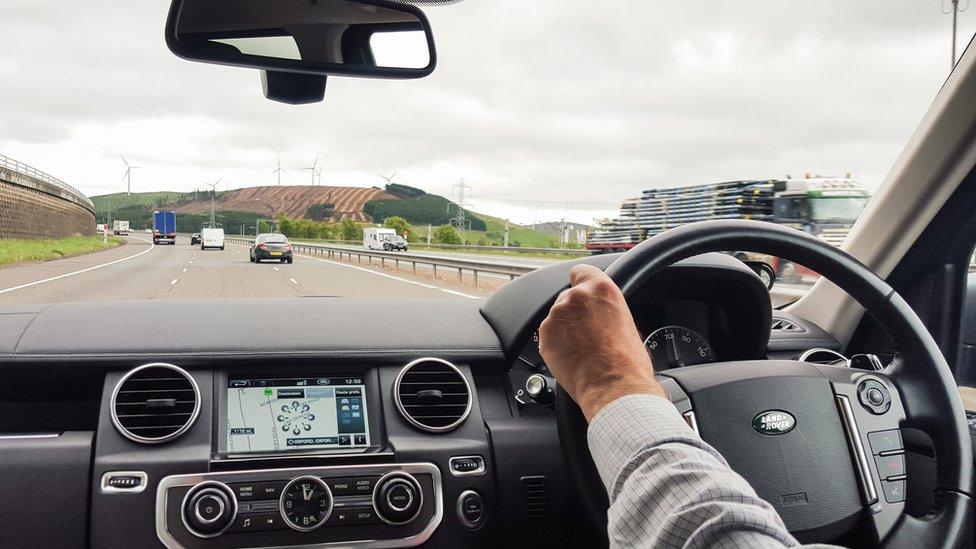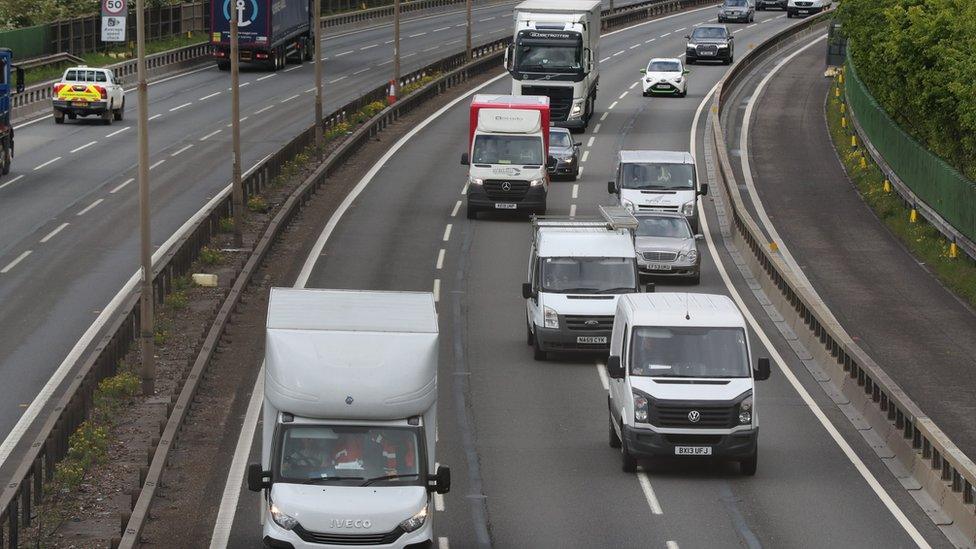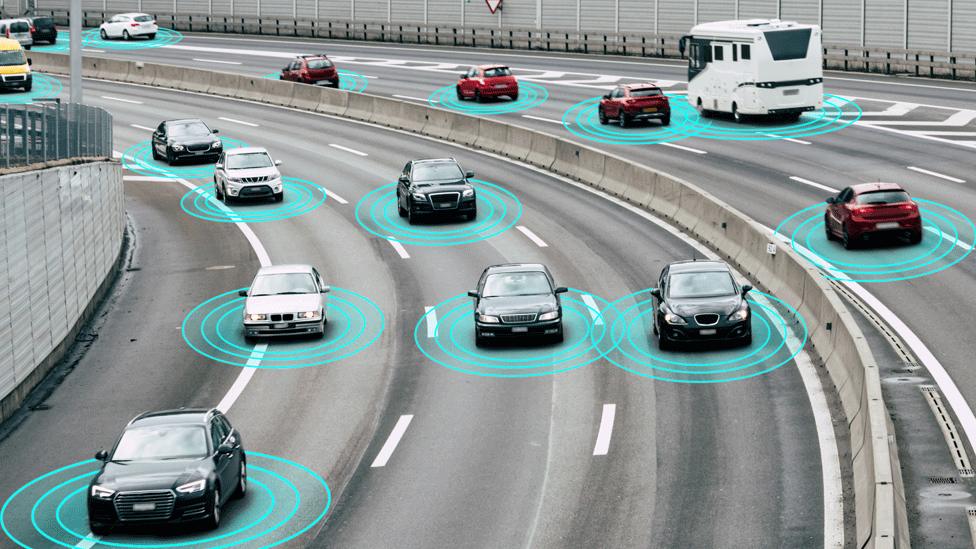'Self-driving' cars to be allowed on UK roads this year
- Published
- comments

Drivers will be allowed to take their hands off the wheel if ALKS is enabled
"Self-driving" vehicles could be allowed on UK roads by the end of this year, the government has said.
The Department for Transport said automated lane-keeping systems (ALKS) would be the first type of hands-free driving legalised.
The technology controls the position and speed of a car in a single lane and it will be limited to 37mph (60km/h)
But insurers have warned the government's definition of ALKS as "self-driving" is misleading.
Previously, the government had said these new laws would be in place by spring this year and told the BBC there was no delay in its suggested timeframes.
Hands-free
Following a consultation last year, the government has now said that vehicles with ALKS technology can be legally defined as self-driving, “as long as they receive GB type approval and that there is no evidence to challenge the vehicle’s ability to self-drive.”
The government confirmed that drivers will not be required to monitor the road or keep their hands on the wheel when the vehicle is driving itself.
But the driver will need to stay alert and be able take over when requested by the system within 10 seconds.
If a driver fails to respond, the vehicle will automatically put on its hazard lights to warn nearby vehicles, slow down and eventually stop.
The Highway Code is now consulting on what rules will be put into new laws to make sure the technology is safely used.
What happens if you fall asleep in a self-driving car?
“This is a major step for the safe use of self-driving vehicles in the UK, making future journeys greener, easier and more reliable while also helping the nation to build back better,” said Transport Minister Rachel Maclean.
“But we must ensure that this exciting new tech is deployed safely, which is why we are consulting on what the rules to enable this should look like.”
Human Error
The technology could improve road safety by reducing human error, the Society of Motor Manufacturers and Traders said.
“Automated driving systems could prevent 47,000 serious accidents and save 3,900 lives over the next decade through their ability to reduce the single largest cause of road accidents – human error,” said chief executive Mike Hawes.
“Technologies such as Automated Lane Keeping Systems will pave the way for higher levels of automation in future – and these advances will unleash Britain’s potential to be a world leader in the development and use of these technologies, creating essential jobs while ensuring our roads remain among the safest on the planet.”
Autopilot
Tesla's so-called "Autopilot" uses lane technology similar to ALKS. It is considered "level two" on the five defined levels of self-driving cars.
The next step - level three - would not need the driver's attention at all times, and in theory, the driver could do other things such as check email or even watch a movie - until the car prompts them to take over again. This is would include ALKS.
However, there have been several incidents involving this technology when drivers did not pay enough attention to the road.
In 2018, a Nottingham resident was banned from driving after climbing into the passenger seat of his Tesla on the motorway, letting it do the driving.
A fatal crash in the United States was caused, in part, by the driver playing a video game while leaving his car in "Autopilot" mode, before it drove into a concrete barrier.
A recent report found that the feature can be “easily tricked” into operating without a driver, adding to the mounting criticisms over the marketing of these features as "self-driving", and whether that is misleading to customers.
'Tragic deaths'
Thatcham Research, which conducts safety tests for motor insurers, urged caution over defining ALKS as 'self-driving', as the government has done.
"ALKS as currently proposed by the government are not automated," said Matthew Avery, director of research at Thatcham Research. "They are assisted driving systems as they rely on the driver to take back control.
"Aside from the lack of technical capabilities, by calling ALKS automated our concern also is that the UK government is contributing to the confusion and frequent misuse of assisted driving systems that have unfortunately already led to many tragic deaths.
"Consumers will expect the car to do the job of a driver, which current models can't do."


The autonomous car industry and the UK government share a sunny optimism about progress towards our self-driving future - but in recent years many of their predictions have failed to come to pass.
In his 2017 Budget the then Chancellor Philip Hammond promised that driverless cars would be on British roads by 2021.
When I emailed a Treasury official to ask whether that really meant an autonomous vehicle with no safety driver the answer came back in block capitals YES - THIS WOULD MEAN FULL SELF-DRIVING CARS WITH NOBODY BEHIND THE WHEEL.
That has obviously not happened and even today's announcement takes us only a short way down that road.
Systems such as Tesla's Autopilot have been keeping cars in lane on British roads for some years - and at speeds far higher than the 37mph envisaged in the new regulations.
The danger is that calling this a "self-driving" feature will make motorists over confident. The road to full autonomy has plenty of technical and regulatory challenges - and the trickiest section of the journey is where drivers can begin to let the car take over but still need to stay alert.
The government is keen to push the idea that the UK can be a leader in self-driving technology - but safety experts are urging caution about the pace at which the robots can be allowed to take the wheel.
- Published19 August 2020

- Published20 May 2019
- Published6 February 2019
